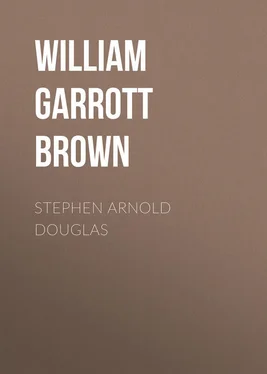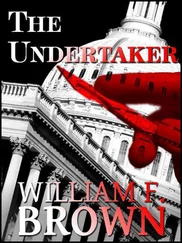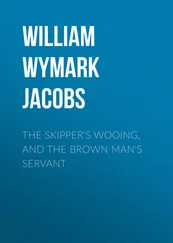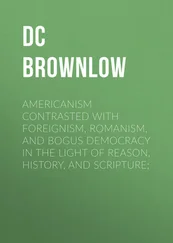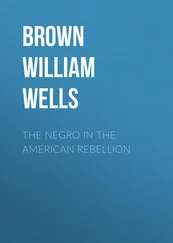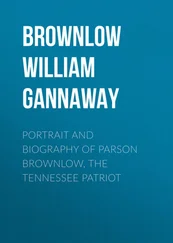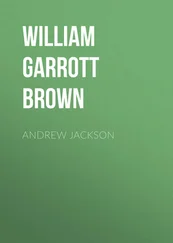William Brown - Stephen Arnold Douglas
Здесь есть возможность читать онлайн «William Brown - Stephen Arnold Douglas» — ознакомительный отрывок электронной книги совершенно бесплатно, а после прочтения отрывка купить полную версию. В некоторых случаях можно слушать аудио, скачать через торрент в формате fb2 и присутствует краткое содержание. Жанр: foreign_antique, foreign_prose, на английском языке. Описание произведения, (предисловие) а так же отзывы посетителей доступны на портале библиотеки ЛибКат.
- Название:Stephen Arnold Douglas
- Автор:
- Жанр:
- Год:неизвестен
- ISBN:нет данных
- Рейтинг книги:3 / 5. Голосов: 1
-
Избранное:Добавить в избранное
- Отзывы:
-
Ваша оценка:
- 60
- 1
- 2
- 3
- 4
- 5
Stephen Arnold Douglas: краткое содержание, описание и аннотация
Предлагаем к чтению аннотацию, описание, краткое содержание или предисловие (зависит от того, что написал сам автор книги «Stephen Arnold Douglas»). Если вы не нашли необходимую информацию о книге — напишите в комментариях, мы постараемся отыскать её.
Stephen Arnold Douglas — читать онлайн ознакомительный отрывок
Ниже представлен текст книги, разбитый по страницам. Система сохранения места последней прочитанной страницы, позволяет с удобством читать онлайн бесплатно книгу «Stephen Arnold Douglas», без необходимости каждый раз заново искать на чём Вы остановились. Поставьте закладку, и сможете в любой момент перейти на страницу, на которой закончили чтение.
Интервал:
Закладка:
In that same house of representatives were John A. McClernand, James Shields, William A. Richardson, and other men who rose to national distinction. Abraham Lincoln, a Whig representative from Sangamon County, was already well known for his ungainly length of body, for his habit of reasoning in parables which were now scriptural and now vulgar to the point of obscenity, and for a quaint and rare honesty. He was four years older than the new member from Morgan, and nearly two feet taller. Douglas, many years later, declared that he was drawn to Lincoln by a strong sympathy, for they were both young men making an uphill struggle in life. Lincoln, at his first sight of Douglas, during the contest with Hardin for the attorneyship, pronounced him "the least man he ever saw."
Douglas was the youngest member of an unusual house, but he at once took his place among the leaders. When the governor's message, animadverting severely on the President's course with the Bank, brought on a discussion of national party questions, he and Hardin seem to have won the chief honors of the debate. He was appointed chairman of the Committee on Petitions, to which numerous applications for divorce were referred, and introduced a resolution which passed and which put an end to divorces by act of the legislature. On the great question of the hour, the question of development and internal improvements, he declared that the State ought to attempt no improvement which it could not afford to construct and to own. He favored a few specific enterprises and the making of careful surveys and estimates before any others should be taken up. But it was the very height of "flush times" in Illinois, and the legislature added millions to the vast sums in which the State was already committed to the support of canals, railroads, river improvements, and banks. It was but a few weeks from the adjournment in March to the great financial panic of 1837, which crushed every one of the state-aided banks, stopped the railroad building and river dredging, and finally left Illinois burdened with an enormous debt. There was a special session of the legislature in the summer, occasioned by the depression and hard times which had followed so hard upon the flush times of the winter, but Douglas was not there to tax his associates with their unwisdom. He had taken another step in his unexampled career of office-holding by accepting from President Van Buren the office of register of public lands at Springfield, the growing town in Sangamon County which the legislature had just made the capital of the State, and where, within a few years, Shields, McClernand, Lincoln, and other rising young men were gathered.
From this time, Douglas and Lincoln knew each other well, for they lived together several years in an atmosphere of intimate personal scrutiny. For searching study of one's fellows, for utter disregard of all superficial criteria of character and conventional standards of conduct, there is but one sort of life to be compared with the life of a Southern or Western town, and that is the life of students in a boarding-school or a small college. In such communities there is little division into classes, as of rich and poor, educated and illiterate, well and obscurely born. On the steps of the court-house, in the post-office while the daily mail is sorted, in the corner drug store on Sundays, in lawyers' offices, on the curbstone, – wherever a group of men is assembled, – there is the freest talk on every possible subject; and the lives of men are open to their fellows as they cannot be in cities by reason of the mass or in country districts by reason of the solitude and the shyness which solitude breeds. Against Douglas there was the presumption, which every New England man who goes southward or westward has to live down, that he would in some measure hold himself aloof from his fellows. But the prejudice was quickly dispelled. No man entered more readily into close personal relations with whomsoever he encountered. In all our accounts of him he is represented as surrounded with intimates. Not without the power of impressing men with his dignity and seriousness of purpose, we nevertheless hear of him sitting on the knee of an eminent judge during a recess of the court; dancing from end to end of a dinner-table with the volatile Shields – the same who won laurels in the Mexican War, a seat in the United States Senate, and the closest approach anybody ever won to victory in battle over Stonewall Jackson; and engaging, despite his height of five feet and his weight of a hundred pounds, in personal encounters with Stuart, Lincoln's athletic law partner, and a corpulent attorney named Francis.
On equal terms he mingled in good-humored rivalry with a group of uncommonly resourceful men, and he passed them all in the race for advancement. There is some reason to believe that Lincoln, strange as it seems, was his successful rival in a love affair, but otherwise Douglas left Lincoln far behind. Buoyant, good-natured, never easily abashed, his maturity and savoir faire were accentuated by the smallness of his stature. His blue eyes and his dark, abundant hair heightened his physical charm of boyishness; his virile movements, his face, heavy-browed, round, and strong, and his well-formed, uncommonly large head gave him an aspect of intellectual power. He had a truly Napoleonic trick of attaching men to his fortunes. He was a born leader, beyond question; and he himself does not seem ever to have doubted his fitness to lead, or ever to have agonized over the choice of a path and the responsibilities of leadership. Principles he had – the principles of Jefferson and Jackson as he understood them. These, apparently, he held sufficient for every problem and every emergency of political life.
He believed in party organization quite as firmly as he believed in party principles, and in the summer of 1837 he had a hand in building up the machinery of conventions and committees through which the Illinois Democrats have governed themselves ever since. He defended Van Buren's plan of a sub-treasury when many even of those who had supported Jackson's financial measures wavered in the face of the disfavor into which hard times had brought the party in power, and in November, although the Springfield congressional district, even before the panic, had shown a Whig majority of 3000, he accepted the Democratic nomination for the seat in Congress to be filled at the election in August, 1838, and threw himself with the utmost ardor into the canvass. The district was the largest in the whole country, for it included all the northern counties of the State. His opponent was John T. Stuart, Lincoln's law partner, and for five months the two spoke six days every week without covering the whole of the great region they aspired to represent. The northern counties had been filling up with immigrants, and more than 36,000 votes were cast. Many ballots were thrown out on technicalities; most of the election officials were Whigs. After weeks of uncertainty, Stuart was declared elected by a majority of five. The moral effect, however, was a triumph for Douglas, who at the time of his nomination was not of the age required of congressmen.
He announced that he would now devote himself to his profession. But it was by this time very difficult, even if he so wished, to withdraw from politics. He was constantly in council with the leaders of his party, and belonged to a sort of "third house" at Springfield which nowadays would probably be called a lobby. During the winter there was an angry controversy between the Democratic governor and the Whig senate over the question of the governor's right to appoint a secretary of state, the senate refusing to confirm his nomination of McClernand on the ground that the office was not vacant. The question was brought before the supreme court, whose Whig majority, by deciding against the governor, strengthened a growing feeling of discontent with the whole judiciary among the Democrats, and Douglas took strong ground in favor of reorganizing the court. In March, addressing a great meeting at Springfield, he defended the Virginia and Kentucky resolutions of 1798, and when the presidential campaign opened in November he had a debate with Lincoln and other Whig orators. He was, in fact, the leading Democratic orator throughout the campaign in Illinois, and there is no doubt that his enthusiasm and his shrewdness had much to do with the result there. Of all the Northern States, only Illinois and New Hampshire went for Van Buren.
Читать дальшеИнтервал:
Закладка:
Похожие книги на «Stephen Arnold Douglas»
Представляем Вашему вниманию похожие книги на «Stephen Arnold Douglas» списком для выбора. Мы отобрали схожую по названию и смыслу литературу в надежде предоставить читателям больше вариантов отыскать новые, интересные, ещё непрочитанные произведения.
Обсуждение, отзывы о книге «Stephen Arnold Douglas» и просто собственные мнения читателей. Оставьте ваши комментарии, напишите, что Вы думаете о произведении, его смысле или главных героях. Укажите что конкретно понравилось, а что нет, и почему Вы так считаете.
